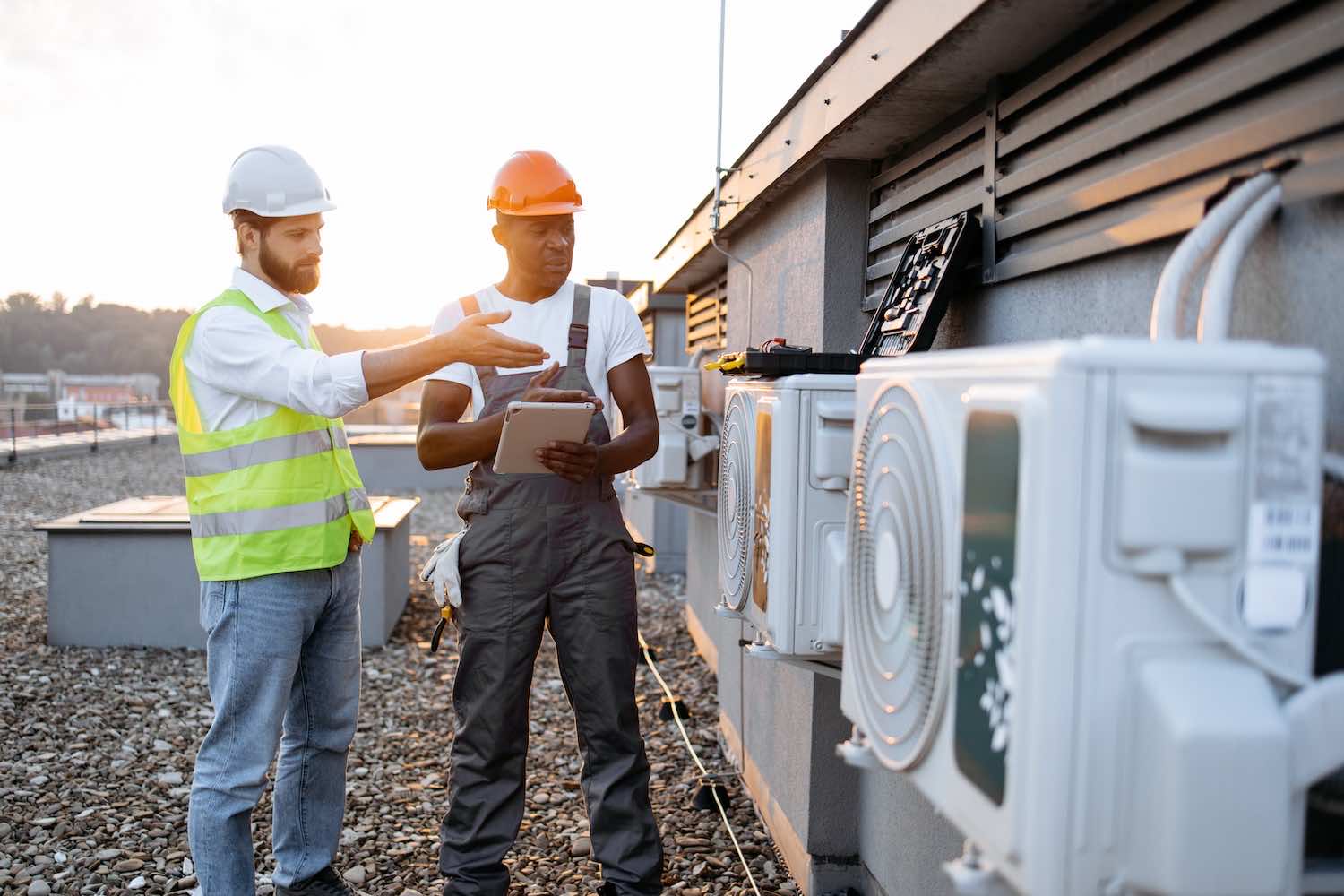A commercial HVAC system is one of the most critical components of any business facility. It keeps employees comfortable, ensures proper air quality, and protects sensitive equipment from temperature fluctuations.
However, many business owners overlook routine HVAC maintenance, assuming the system will continue running efficiently without regular servicing.
Over time, neglect leads to costly breakdowns, higher energy bills, and even lost revenue due to unexpected downtime. Addressing maintenance issues early prevents expensive repairs and extends the lifespan of the system, saving businesses thousands of dollars in avoidable costs.
Increased Energy Costs Due to System Inefficiency
An HVAC system that isn’t properly maintained loses efficiency over time. Dust buildup, clogged filters, and worn-out components force the system to work harder to achieve the same level of cooling or heating. As a result, energy consumption skyrockets, and utility bills climb higher each month. Commercial properties in Dallas/Fort Worth already contend with intense summer heat, making HVAC efficiency crucial for controlling operational expenses.
Dirty condenser coils are a major contributor to energy waste. When coils become covered in dirt and debris, they can’t release heat effectively, causing the system to run longer cycles to cool the space. This extended runtime leads to excessive wear and tear on components while consuming more electricity. Cleaning condenser coils regularly restores efficiency and prevents unnecessary energy losses.
Failing to replace air filters on schedule is another common cause of increased energy usage. A clogged filter restricts airflow, forcing the blower motor to work harder to push air through the system. This not only drives up energy costs but also reduces indoor air quality, affecting employee productivity and customer comfort. Replacing air filters every one to three months improves airflow and keeps the system running efficiently.
Costly Repairs and Emergency Breakdowns
Routine maintenance helps identify minor issues before they escalate into expensive repairs. Ignoring warning signs, such as unusual noises, weak airflow, or inconsistent temperatures, can result in sudden system failures that require emergency service. Unplanned breakdowns often occur during peak usage seasons, when HVAC companies are busiest and repair costs are at their highest.
A neglected HVAC system is more prone to refrigerant leaks, compressor failures, and electrical malfunctions. Low refrigerant levels force the system to run longer cycles, leading to overheating and potential compressor damage. Replacing a compressor is one of the most expensive HVAC repairs, often costing thousands of dollars. Regular maintenance ensures refrigerant levels remain optimal, preventing compressor strain and premature failure.
Electrical issues within an HVAC system can cause significant disruptions. Loose connections, failing capacitors, and worn-out contactors may go unnoticed until the system stops working altogether. A commercial HVAC technician can inspect electrical components during routine maintenance, replacing worn parts before they cause a major system failure. Preventive measures reduce the risk of unexpected breakdowns and the associated financial burden.
Shortened Equipment Lifespan and Premature Replacements
Commercial HVAC systems are designed to last 15-20 years with proper care, but neglect significantly shortens their lifespan. Running a system under stress due to poor maintenance causes excessive wear on key components, leading to frequent repairs and early system failure. The cost of replacing an entire commercial HVAC system can be staggering, making it essential to maximize the lifespan of the existing unit.
A well-maintained system operates more efficiently, reducing the strain on internal components. Lubricating moving parts, cleaning coils, and checking refrigerant levels all contribute to smooth operation and extended longevity. Businesses that invest in regular maintenance avoid the premature replacement of costly HVAC equipment, allowing them to allocate their budget more effectively.
Many manufacturers require proof of routine maintenance to keep warranties valid. If an HVAC system breaks down within the warranty period, but maintenance records are missing, the manufacturer may deny coverage, leaving the business responsible for the full cost of repairs. Scheduling professional HVAC maintenance protects warranty coverage and ensures access to manufacturer-backed repairs if needed.
Loss of Productivity and Business Disruptions
An HVAC failure in a commercial setting can disrupt operations, impact employee productivity, and create an uncomfortable environment for customers. In offices, poor temperature regulation affects focus and efficiency, leading to decreased employee performance. Retail stores, restaurants, and service-based businesses risk losing customers if indoor temperatures become unbearable.
Unexpected HVAC downtime can be particularly damaging for businesses that rely on climate control to protect inventory or equipment. Data centers, medical facilities, and manufacturing plants require precise temperature regulation to prevent damage to sensitive materials. A sudden system failure in these environments can lead to substantial financial losses and operational setbacks.
Maintaining a commercial HVAC system ensures consistent performance and minimizes disruptions. Scheduling preventive maintenance during off-peak hours allows businesses to address potential issues without affecting daily operations. By keeping the system in optimal condition, companies avoid costly interruptions that could impact revenue and customer satisfaction.
How Preventive Maintenance Saves Thousands
Regular HVAC maintenance may seem like an added expense, but it ultimately saves businesses far more money in the long run. Investing in routine inspections and servicing helps avoid costly emergency repairs, reduces energy waste, and extends the life of expensive equipment. The cost of a maintenance plan is significantly lower than the price of a major system overhaul or replacement.
A comprehensive commercial HVAC maintenance plan includes tasks such as inspecting and cleaning coils, checking refrigerant levels, testing electrical connections, calibrating thermostats, and ensuring proper airflow. These proactive measures keep the system running efficiently and prevent minor issues from developing into major problems.
For Dallas/Fort Worth businesses, maintaining an energy-efficient HVAC system is essential for managing operational costs. By prioritizing preventive maintenance, businesses can lower utility bills, reduce repair expenses, and avoid the financial impact of unexpected system failures. The savings from improved efficiency and fewer repairs quickly outweigh the cost of routine servicing, making commercial HVAC maintenance a smart financial decision.
